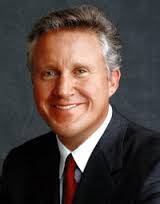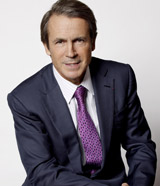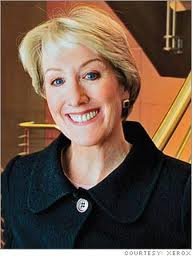
Authors: Howard Schultz & Joanne Gordon
Key words
Change management, leadership, rebuilding a brand, supply chain management
Quick Summary
Howard Schultz’ very personal and open account of the difficulties that Starbucks ran into and why, in 2008, he decided to come back to the company as CEO. He had stepped down 8 years before. Schultz’s is very passionate about his company (this comes out even more in interviews) and the people that work for it. The book is even divided into five parts entitled Love, Confidence, Pain, Hope and Courage.
The book gives an excellent account of how an “iconic brand” reinvented itself, why Schultz was determined to ban hot breakfasts from the store, the importance of creating an ‘experience’ or an ‘atmosphere’ for the customer and how the company became profitable again. He is also quite honest about why certain products and strategies failed.
According to its CEO (he prefers, “ceo”, though if poor grammar made you a great leader there would be no need for any kind of schools at all!) Starbucks is more than just another company. Customers have a very emotional attachment to the store and they don’t just go there to drink a coffee; they go to read, blog, think or even to fall in love.
Schultz explains his decisions when he came back to Starbucks
On this less emotional side, if you are interested in supply chain management, you will also get an excellent idea of the day to day problems a company can run into when it doesn’t get this right. In 2008, only 3 customers out of 10 were actually getting the order they wanted. 2 years later it was up to 90%.
The only slightly irritating part of the book is the emphasis on many of the decisions being made “over coffee.” This comes across as being some form of subliminal advertising. Granted, he doesn’t actually say which brand of coffee they were drinking, but I think we can probably all guess!
Some facts you didn’t know
“Starbucks” is named after the first mate of the whale ship Pequod in Herman Meville’s classic Moby Dick.
60 million people walk into a Starbucks coffee shop each week (that’s the population of the UK or France.) It has over 16,000 stores in 54 countries.
The idea for Starbucks came to Howard Schultz while he was drinking coffee in Milan. Looking at the waiter he says he realized that it was “not his job… it was his passion.”
In February 2008, it made the decision to close ALL of its 7100 US stores for one day to retrain its staff.
Since its early days, Starbucks has banned smoking and asked its staff not to wear perfume or cologne “to preserve the coffee aroma.”
Starbucks was stunned in 2007, when a Consumer Reports taste test rated its coffee behind McDonald’s.
In his first month back as CEO, Howard Schultz received 5600 emails from staff and customers.
Interesting quotes from the book
“I have always loved this company. Love is why I had come back as CEO and why I feel so personally responsible for its failure and success.”
“I had resisted the idea of serving hot food from day one. While I encouraged innovation, I never envisioned people coming into Starbucks for a sandwich. And when they did, the sandwiches’ cheese would inevitably drip and then sizzle in the ovens, releasing a pungent smell. The breakfast sandwich became my quintessential example of how we were losing our way.”
“Icons disrupt themselves before others disrupt them. Enduring icons are willing to sacrifice near-term popularity for longer-term relevance.”
“Every organization has a memory, a history of achievements, mistakes, even unintended consequences that contribute to an ongoing dialogue as people mold an event’s meaning for themselves.”
“People did not just wake up one morning and decide not to go to Starbucks anymore. They were still coming, just less frequently.”
“The “$4 latte” – that untrue catchphrase that cast Starbucks as a symbol of excess in frugal times- was hardly the consumers’ enemy during this period of economic turmoil. But it sure was an easy target.”
“Innovation, as I had often said, is not only about rethinking products, but also rethinking the nature of relationships.”
Business School Grenoble EM International Affairs Higher Education ESC Grenoble Strategy Blog Global Ed Graduate Business School Mark Thomas
See also:
Other Book Reviews
Book review: ‘Onward: How Starbucks Fought for Its Life Without Losing Its Soul’ by Howard Schultz
Los Angeles Times: “For while Schultz constantly tells the reader how much he cares about Starbucks’ 137,000 employees, his treatment of Jim Donald — who served as chief executive for the latter part of a seven-year period during which Schultz gave up the top job but remained on the premises as an active chairman — comes off as appalling.”
Review: Howard Schultz tells story of Starbucks turnaround in newest book “Onward”
Seattle Times: “Unlike most Fortune 500 CEOs, Schultz talks about his feelings and admits taking things personally. When he walked onstage for Starbucks’ annual shareholders meeting at McCaw Hall in early 2008, shortly after he resumed taking the helm of a troubled coffee chain, Schultz was floored by the long ovation.”
When Latte Lost Its Luster
The Wall Street Journal: “Mr. Schultz, Starbucks’s largest individual shareholder, says he feared that Starbucks had lost its soul and was in danger of no longer being “a different kind of company,” meaning the kind that gives customers an emotional twitch.”
Related Blog Articles
Starbucks Price Increase – A Case Study In Analysis
Iterative Path: “Starbucks decided to raise its drink pricesby as much as 8% (5 cents to 30 cents), They are doing this just when customers are cutting back on their Starbucks trips and switching to cheaper alternatives from McDonalds and Dunkin Donuts.”
Starbucks rolls out calorie info on U.S. store menus
CBC News Blog: “The company is taking the step to give customers the ability to drink “within their desired calorie range,” said Mary Wagner, the vice-president ofStarbuck’s Global Research and Development, in a statement. “Starbucks believes that wellness is the journey to a happy, healthy life through daily choices, whether it’s a favourite beverage or a wholesome meal option.”
Starbucks opens in historic monastery, reignites controversy over globalization
Meanwhile in China: “The furor over the Starbucks in Lingyin Temple was linked to an earlier business initiative by the coffee giant – in 2000, a Starbucks opened inside the Forbidden City in Beijing. Online microbloggers protested the lack of cultural sensitivity and respect for historical tradition. After seven years, the Forbidden City Starbucks bowed to public pressure and closed its doors in 2007.”
OPRA’s Learning Blog
A discussion forum for individuals, managers and leaders on areas related to Organisational Psychology
Greater Leadership
Education and Empowerment: “I reflect on the foundations of what it means to be a great leader quite often. How do I inspire? How do I appreciate and congratulate? How do I hold people accountable in ways in which their personal worth is still recognized? This question of leadership is one of the questions with which I am consistently grabbling.”
Strategy Land – Richard Rumelt´s Blog
“Richard Rumelt’s Web Journal on Good and Bad Strategy in Business, Politics, and Economics”
Peter Lorange’s Blog
“Blog of Professor Dr. Peter Lorange , one of the world’s foremost business school academics.”
‘Attitude Reflects Leadership’ And Other Life Lessons
Theinnerwildkat: “Remember the Titans – the movie shows the beginnings of acceptance and teamwork that were beginning to take root during a very tough time in our history. As I thought about the this movie, I saw a lot of pertinent things to today in both acceptance and leadership.”
 |
 |
 |
|
| Steve Jobs’ favourite book. Any more questions? | 600 pages and excellent from start to finish. Learn about the man and his strategy. |
“The opposite of ‘success’ is not ‘failure’, but ‘mediocrity’”
Mar


















Pingback: BOOK REVIEW: The Fifth Discipline | GlobalEd
Pingback: BOOK REVIEW: Predictably Irrational: The Hidden Forces That Shape Our Decisions | GlobalEd
Pingback: BOOK REVIEW: The Upside Of Irrationality | GlobalEd
Pingback: BOOK REVIEW: Borderless Economics by Robert Guest | GlobalEd
Pingback: BOOK REVIEW: Inside Coca Cola | GlobalEd
Pingback: Onwards | singlestepslearning
Pingback: BOOK REVIEW: “What is Strategy – and does it matter?” by Richard Whittington | GlobalEd
Pingback: BOOK REVIEW “Good Strategy / Bad Strategy” by Richard Rumelt | GlobalEd
Pingback: Walking on the Moon.…Armstrong, Hero or Villain ? | GlobalEd
Pingback: BOOK REVIEW: “Steve Jobs” by Walter Isaacson | GlobalEd
Pingback: BOOK REVIEW: “Leading in Turbulent Times” by Peter Lorange | GlobalEd
Pingback: BOOK REVIEW: “One Click” by Richard L. Brandt | GlobalEd
Pingback: BOOK REVIEW: “Jack: What I’ve Learned Leading a Great Company and Great People” by Jack Welch & John A. Byrne | GlobalEd
Pingback: BOOK REVIEW: “Good to Great” by Jim Collins | GlobalEd
Pingback: BOOK REVIEW: “Who Says Elephants Can’t Dance?” by Louis V. Gerstner, Jr. | GlobalEd
Pingback: BOOK REVIEW: “Blink” by Malcolm Gladwell | GlobalEd
Pingback: BOOK REVIEW “Competitive Strategy” by Michael Porter | GlobalEd
Pingback: BOOK REVIEW: “The Innovator’s Dilemma” by Clayton M. Christensen | GlobalEd
Hey! I simply would like to give a huge thumbs up
for the good information you’ve gotten right here on this post.
I will probably be coming again to your weblog for more soon.
Pingback: BOOK REVIEW: “The Art of Choosing” by Dr. Sheena Iyengar | GlobalEd
Pingback: BOOK REVIEW: “True North: Discover Your Authentic Leadership” by Bill George (2007) | GlobalEd